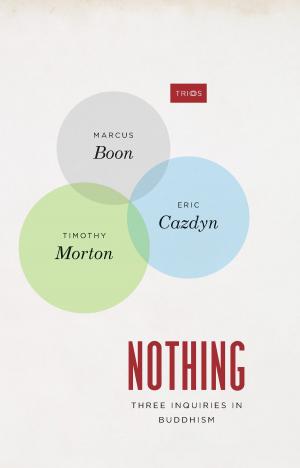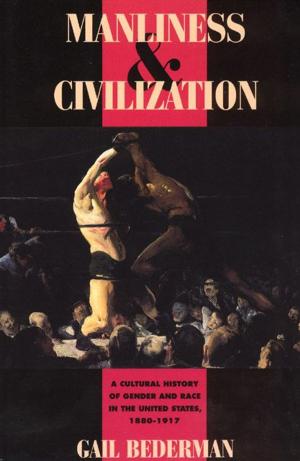| Author: | Sara Suleri Goodyear | ISBN: | 9780226044675 |
| Publisher: | University of Chicago Press | Publication: | January 15, 2013 |
| Imprint: | University of Chicago Press | Language: | English |
| Author: | Sara Suleri Goodyear |
| ISBN: | 9780226044675 |
| Publisher: | University of Chicago Press |
| Publication: | January 15, 2013 |
| Imprint: | University of Chicago Press |
| Language: | English |
Sara Suleri Goodyear's Meatless Days, recognized now as a classic of postcolonial literature, is a finely wrought memoir of her girlhood in Pakistan after the 1947 partition. Set around the women of her family, Meatless Days intertwines the violent history of Pakistan's independence with Suleri Goodyear's most intimate memories of her grandmother, mother, and sisters. In Boys Will Be Boys, she returns—with the same treasury of language, humor, and passion—to her childhood and early adulthood to pay tribute to her father, the political journalist Z. A. Suleri (known as Pip, for his "patriotic and preposterous" disposition).
Taking its title from that jokingly chosen by her father for his unwritten autobiography, Boys Will Be Boys dips in and out of Suleri Goodyear's upbringing in Pakistan and her life in the United States, moving between public and private history and addressing questions of loss and cultural displacement through a resolutely comic lens. In this rich portrait, Pip emerges as a prodigious figure: an ardent agitator against British rule in the 1930s and 1940s, a founder of the Times of Karachi and the Evening Times, on-and-off editor of the Pakistan Times, for a brief time director of the Pakistan military intelligence service, and a frequently jailed antagonist of successive Pakistani leaders. To the author, though, he was also "preposterous . . . counting himself king of infinite space," a man who imposed outrageously on his children. As Suleri Goodyear chronicles, Pip demanded their loyalty yet banished them easily from his favor; contrary and absurdly unfair, he read their diaries, interfered in their relationships, and believed in a father's inalienable right to oppress his children.
Suleri Goodyear invites the reader into an intimacy shaped equally by history and intensely personal detail, creating an elegant elegy for a man of force and contradiction. And perhaps Pip was not so preposterous after all: "On Judgment Day," he told his daughter, "I will say to God, 'Be merciful, for I have already been judged by my child.'"
Sara Suleri Goodyear's Meatless Days, recognized now as a classic of postcolonial literature, is a finely wrought memoir of her girlhood in Pakistan after the 1947 partition. Set around the women of her family, Meatless Days intertwines the violent history of Pakistan's independence with Suleri Goodyear's most intimate memories of her grandmother, mother, and sisters. In Boys Will Be Boys, she returns—with the same treasury of language, humor, and passion—to her childhood and early adulthood to pay tribute to her father, the political journalist Z. A. Suleri (known as Pip, for his "patriotic and preposterous" disposition).
Taking its title from that jokingly chosen by her father for his unwritten autobiography, Boys Will Be Boys dips in and out of Suleri Goodyear's upbringing in Pakistan and her life in the United States, moving between public and private history and addressing questions of loss and cultural displacement through a resolutely comic lens. In this rich portrait, Pip emerges as a prodigious figure: an ardent agitator against British rule in the 1930s and 1940s, a founder of the Times of Karachi and the Evening Times, on-and-off editor of the Pakistan Times, for a brief time director of the Pakistan military intelligence service, and a frequently jailed antagonist of successive Pakistani leaders. To the author, though, he was also "preposterous . . . counting himself king of infinite space," a man who imposed outrageously on his children. As Suleri Goodyear chronicles, Pip demanded their loyalty yet banished them easily from his favor; contrary and absurdly unfair, he read their diaries, interfered in their relationships, and believed in a father's inalienable right to oppress his children.
Suleri Goodyear invites the reader into an intimacy shaped equally by history and intensely personal detail, creating an elegant elegy for a man of force and contradiction. And perhaps Pip was not so preposterous after all: "On Judgment Day," he told his daughter, "I will say to God, 'Be merciful, for I have already been judged by my child.'"















